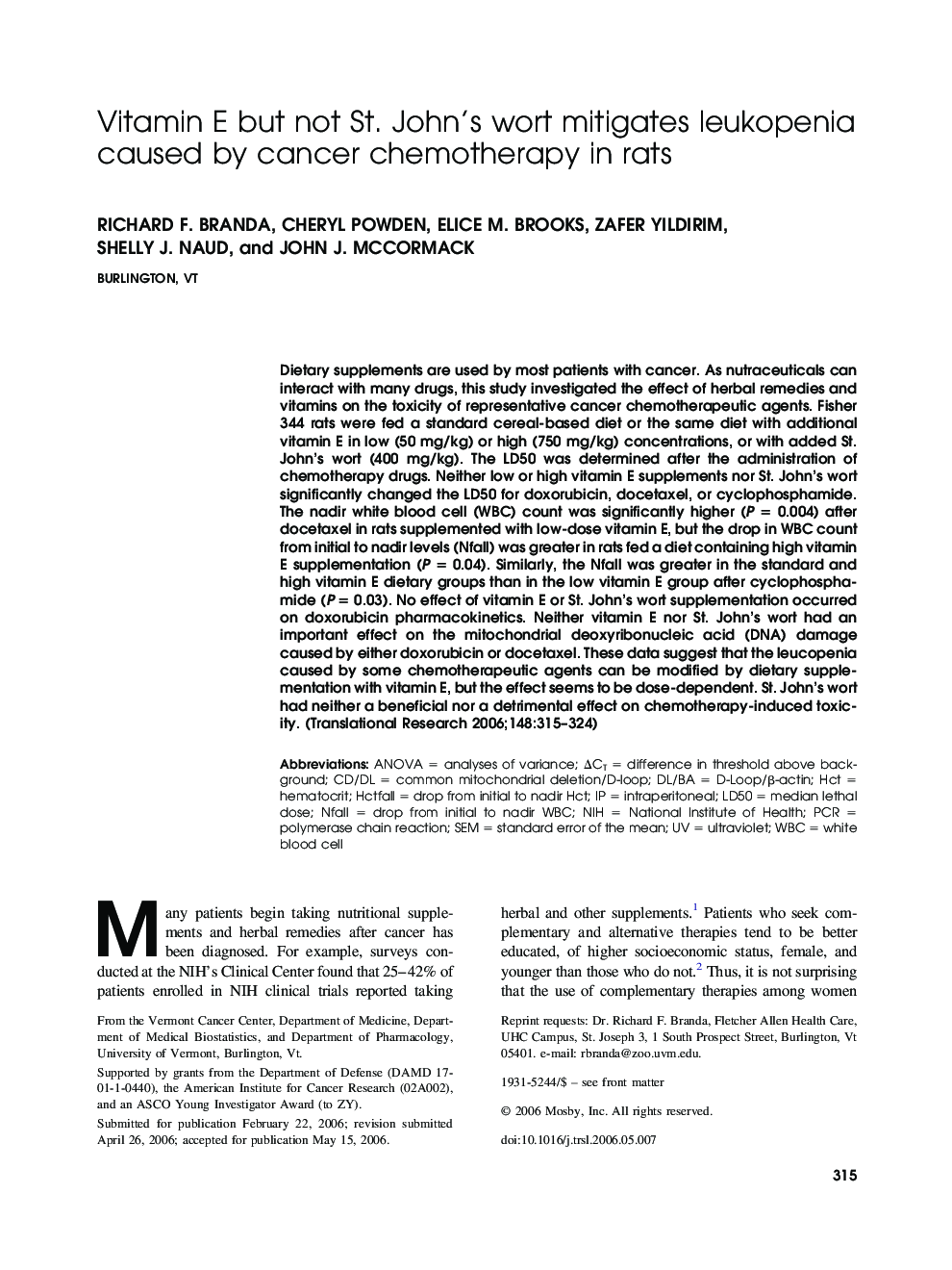| Article ID | Journal | Published Year | Pages | File Type |
|---|---|---|---|---|
| 3841733 | Translational Research | 2006 | 10 Pages |
Dietary supplements are used by most patients with cancer. As nutraceuticals can interact with many drugs, this study investigated the effect of herbal remedies and vitamins on the toxicity of representative cancer chemotherapeutic agents. Fisher 344 rats were fed a standard cereal-based diet or the same diet with additional vitamin E in low (50 mg/kg) or high (750 mg/kg) concentrations, or with added St. John’s wort (400 mg/kg). The LD50 was determined after the administration of chemotherapy drugs. Neither low or high vitamin E supplements nor St. John’s wort significantly changed the LD50 for doxorubicin, docetaxel, or cyclophosphamide. The nadir white blood cell (WBC) count was significantly higher (P = 0.004) after docetaxel in rats supplemented with low-dose vitamin E, but the drop in WBC count from initial to nadir levels (Nfall) was greater in rats fed a diet containing high vitamin E supplementation (P = 0.04). Similarly, the Nfall was greater in the standard and high vitamin E dietary groups than in the low vitamin E group after cyclophosphamide (P = 0.03). No effect of vitamin E or St. John’s wort supplementation occurred on doxorubicin pharmacokinetics. Neither vitamin E nor St. John’s wort had an important effect on the mitochondrial deoxyribonucleic acid (DNA) damage caused by either doxorubicin or docetaxel. These data suggest that the leucopenia caused by some chemotherapeutic agents can be modified by dietary supplementation with vitamin E, but the effect seems to be dose-dependent. St. John’s wort had neither a beneficial nor a detrimental effect on chemotherapy-induced toxicity.
